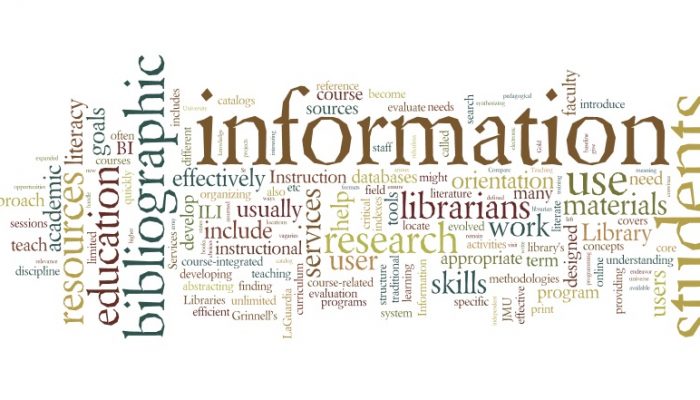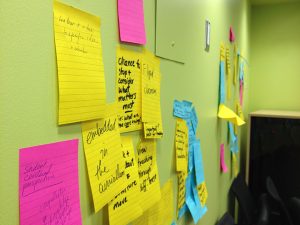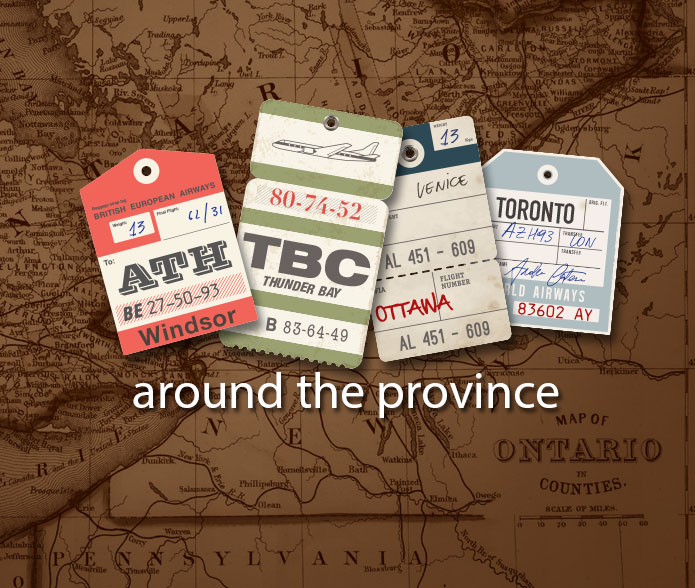Learn about a librarian’s research into 2SLGBTQ+ Libraries and Archives, preserving queer history, and current activism efforts.

TRY Reframing Information Literacy: The New ACRL Framework
Librarians had many questions after the publication of the first draft of the Association of College & Research Libraries’ (ACRL) Information Literacy Framework for Higher Education in February 2014. How do we use the threshold concepts in one-shot library instruction classes? Do the threshold concepts revitalize information literacy? Is searching really strategic?
Now, with the Framework in front of the ACRL Board of Directors, it is a popular topic at conferences. Even after various workshops and discussions, the debate persists and the conversation continues on exploring, using, and implementing the Framework. In this article we discuss the steps taken by a group of instructional librarians (including the authors) from Ryerson University, University of Toronto, and York University to address the Framework. We describe what we learned from our participatory session at the OLA SuperConference 2015, and suggest next steps for building community engagement.

TRYing to Engage Our Institutions
In March of 2014, a group of librarians from Toronto / Ryerson / York libraries (the TRY group) decided to explore how the first draft of the new Framework might influence the bibliographic instruction landscape at our institutions. The group consisted of Colleen Burgess and Don Kinder representing Ryerson University, John Bolan, Whitney Kemble, Mindy Thuna, Silvia Vong, and Jenaya Webb from the University of Toronto, and Kim Stymest and Sarah Shujah leading York University.
Librarians at York organized a World Café feedback session with colleagues and facilitated by the Teaching Commons. Ryerson and UofT engaged in similar activities to solicit feedback from instructional librarians at their institutions.
Questions included:
How satisfied are you with the overall Framework?
How will it change the way you work with students?
How will the associated threshold concepts help generate conversation with campus stakeholders?
We used the outcomes of these sessions to provide feedback to the ACRL Task Force charged with writing the Framework.
Following these early initiatives, the TRY group presented Crossing the Threshold: Embarking on a New Framework for Information Literacy for Higher Education, at the annual TRY Library Staff Conference in May 2014. In our presentation we discussed the change from standards to threshold concepts and deconstructed the new model. We also created a wiki to share findings, implement ideas, and promote upcoming webinars and workshops on new drafts of the Framework.
In August 2014, the TRY group developed and delivered three workshops for librarians from all three institutions to come together and analyze the Framework’s threshold concepts. Through guided exercises, collegial discussions, and peer feedback, we turned theory into practice. Small teams of participants took on various threshold concepts and developed practical activities for their own instruction. You can see some examples here.
Furthermore, in December 2014 at Ryerson and York’s joint professional development day, Trudi Jacobson and Craig Gibson, co-chairs of the ACRL Task Force, facilitated the interactive workshop, Reframing information literacy – a new model. Participants redesigned research assignments and considered curricular changes using the Framework.

TRYing a Fishbowl Discussion
Most recently, at the 2015 Ontario Library Association Super Conference, the TRY group organized a fishbowl discussion, Crossing the Threshold: From Old to New IL Standards, to share our experiences and broaden discussion about the Framework. Eighty-two conference delegates attended the session and many actively joined the conversation.
The discussion began with four members of the TRY group in the fishbowl in the center of the room, one member acting as a note taker, and another as a facilitator. During the session, we tackled some major issues facing academic librarians including integrating the new Framework into a one-shot session, balancing priorities of bibliographic instruction with the higher goals set forward in the threshold concepts, and evolving pedagogical approaches to instruction, to name just a few.
Members of the audience who joined panelists in the fishbowl shared concerns on a wide range of topics. These included concerns around the scalability of Framework-based IL programs, embedding the Framework across an undergraduate program, and getting buy-in from faculty to have a discussion rather than a tools-based practice session.
Some participants recommended the flipped classroom model and online learning modules as ways to integrate both tools-based instruction and threshold concepts in our teaching. Others encouraged broadening the scope of what we consider instruction to include high-level learning opportunities at the reference desk, virtual reference, and research appointments.
Participants also offered practical suggestions for working with the new Framework. In terms of pedagogical approach, both panelists and participants praised the notion of putting oneself in students’ shoes and avoiding the idea of perfection. Instead, panelists agreed that the Framework supports exploring the messiness of research, the cyclical nature of searching, the false starts, and the time required to evaluate information. This interpretation of the Framework shines a light on information literacy as a lifelong skill that requires practice, reflection, assessment, and learning from one’s own mistakes.
How are you adapting your IL classes to the Framework? How has your approach with faculty changed? How are you conceptualizing students as knowledge producers? We invite you to contribute to the TRY group’s wiki. It is intended for all of us to share our methods for exploring, using, and implementing the Framework. We want to hear from you!
Colleen Burgess is a Research and Instructional Services Librarian at Weldon Library, Western University. She can be reached at caburges [at] uwo.ca or @CollaLibrarian. Sarah Shujah is a Librarian at Morningside Campus Library, Centennial College in Toronto. You can get in touch with her at sshujah [at] centennialcollege.ca.


